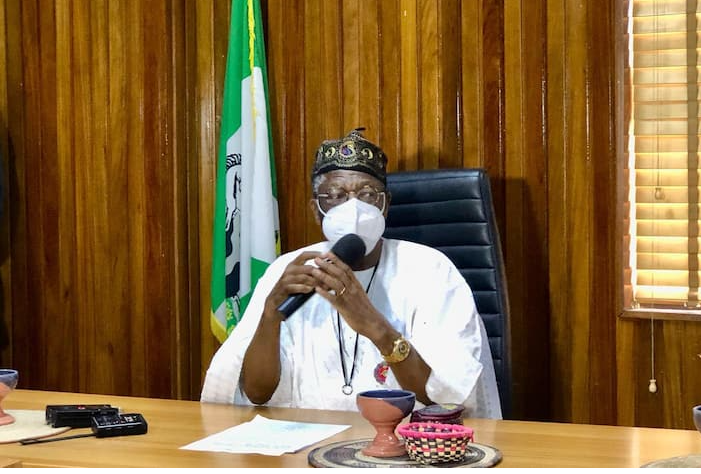Corruption has remained a pervasive issue in Nigeria, deeply rooted within public and private institutions, and affecting nearly every sector of society. Its effects ripple through the economy, governance, and social welfare, eroding public trust, hindering development, and worsening inequality. Yet, there is growing consensus and advocacy within Nigeria’s civil society, governance, and international community to address this crisis head-on. The question remains: can Nigeria break the cycle of corruption? To explore this, we must understand the underlying causes, the impacts, and the potential solutions that can pave the way for a transparent and accountable system.
The Roots of Corruption in Nigeria
Corruption in Nigeria has long been fueled by systemic issues, including weak institutional frameworks, limited accountability, and a culture of impunity among elites. Key contributors include:
1.Political Patronage and Cronyism: The political culture in Nigeria has traditionally prioritized loyalty over merit, with leaders often favoring family, friends, and loyalists in appointments and contracts. This patronage system creates an environment where corruption flourishes unchecked.
2.Economic Inequality and Poverty: With a significant portion of the population living below the poverty line, individuals are often driven to engage in corrupt practices to secure basic needs. Meanwhile, the gap between rich and poor exacerbates resentment and creates cycles of dependency on corrupt practices for economic survival.
3.Weak Institutional Frameworks: Inadequate policies, oversight, and enforcement mechanisms have allowed public funds to be misappropriated with minimal consequence. This is compounded by a lack of transparency in public spending and poor record-keeping, making it difficult to trace and combat corruption effectively.
4.Social and Cultural Norms: In some regions, corruption has become normalized, embedded in the culture, and, to some degree, accepted as a “way of doing things.” This has created a vicious cycle where citizens have limited trust in governmental processes, reinforcing acceptance of corrupt practices.
The Impact of Corruption on Nigeria
Corruption impacts Nigeria’s society and economy in profound ways, often perpetuating poverty, stifling development, and weakening democratic institutions.
1.Economic Stagnation: Corruption siphons funds that could otherwise be directed toward public goods, such as infrastructure, education, and healthcare. This diverts essential resources away from development, leaving the country’s economy to rely heavily on oil revenue while other sectors remain underdeveloped.
2.Inhibited Investment: Foreign and local investors are often deterred by Nigeria’s reputation for corruption, viewing it as a risk factor that can raise the cost of doing business. As a result, Nigeria misses out on vital investments that could foster job creation and economic growth.
3.Erosion of Public Trust: A corrupt system ultimately alienates citizens, eroding trust in government institutions and public officials. This distrust fuels civic apathy, disengagement from political processes, and can even lead to political instability.
4.Worsening of Poverty and Inequality: Corruption directly hinders government efforts to tackle poverty by diverting funds meant for public welfare programs. The most vulnerable populations are left without access to adequate healthcare, education, and social services, widening the gap between rich and poor.
5.Damage to Nigeria’s Global Image: Persistent corruption has damaged Nigeria’s international reputation, often leading to diplomatic frictions and a perception of Nigeria as a high-risk location for investment and partnership. This further isolates the country in global trade and development initiatives.
Steps Toward Accountability
Breaking the cycle of corruption is a complex and challenging endeavor, yet there are tangible steps Nigeria can take to establish greater accountability:
1. Strengthening Anti-Corruption Institutions: Institutions such as the Economic and Financial Crimes Commission (EFCC) and Independent Corrupt Practices Commission (ICPC) must be empowered with greater autonomy and resources to act without political interference. Enhancing their investigative powers, enabling them to prosecute high-profile cases, and protecting whistleblowers are essential measures to increase transparency.
2.Judicial Reform: A transparent and impartial judicial system is key to fighting corruption. Judicial reforms must focus on reducing case backlogs, ensuring impartiality, and increasing the judiciary’s capacity to hold individuals and corporations accountable for corrupt practices.
3.Public Access to Information: Transparency is crucial in any fight against corruption. Enforcing Nigeria’s Freedom of Information Act, which grants citizens access to public records, will empower citizens to scrutinize government actions and expenditure.
4.Technological Solutions: Implementing digital systems for monitoring government expenditure can minimize opportunities for corruption. Initiatives like the Treasury Single Account (TSA), which centralizes government funds, have already proven effective in reducing leakages. Expanding digital systems to cover more areas of public service can promote accountability.
5.Political Will and Leadership: Real and lasting change requires political leaders who are committed to fighting corruption rather than benefiting from it. Efforts to ensure transparency in political party funding, campaign finance, and vetting candidates for political office can foster a culture of accountability from the top down.
6.Empowering Civil Society and Media: Civil society organizations and a free press play crucial roles in exposing corruption and advocating for reform. Protecting journalists and activists who report on corruption and facilitating civil society’s role in government oversight are vital to creating a transparent system.
7.Education and Awareness Campaigns: Educating citizens on their rights and the harmful effects of corruption can create a collective movement for change. Programs targeting youth and grassroots communities can foster a culture of integrity and accountability from an early age.
Can Nigeria Break the Cycle?
The path to breaking the cycle of corruption in Nigeria is fraught with challenges, but the potential benefits are profound. In recent years, Nigeria has witnessed some progress, with greater emphasis on digital solutions, a push for judicial reform, and increasing public awareness and activism against corruption. Although these measures alone cannot eradicate corruption, they lay a strong foundation for long-term, systemic change.
A corruption-free Nigeria could mean improved public services, an energized economy, and a strengthened global reputation. With citizens, institutions, and leadership united in this mission, Nigeria has a real opportunity to establish an accountable and transparent governance model that benefits all Nigerians.
To sustain momentum, Nigerians must remain engaged, holding leaders accountable and demanding integrity at every level of governance. By taking ownership of this struggle, Nigeria can indeed break the cycle and set a transformative example for other nations grappling with corruption.




















